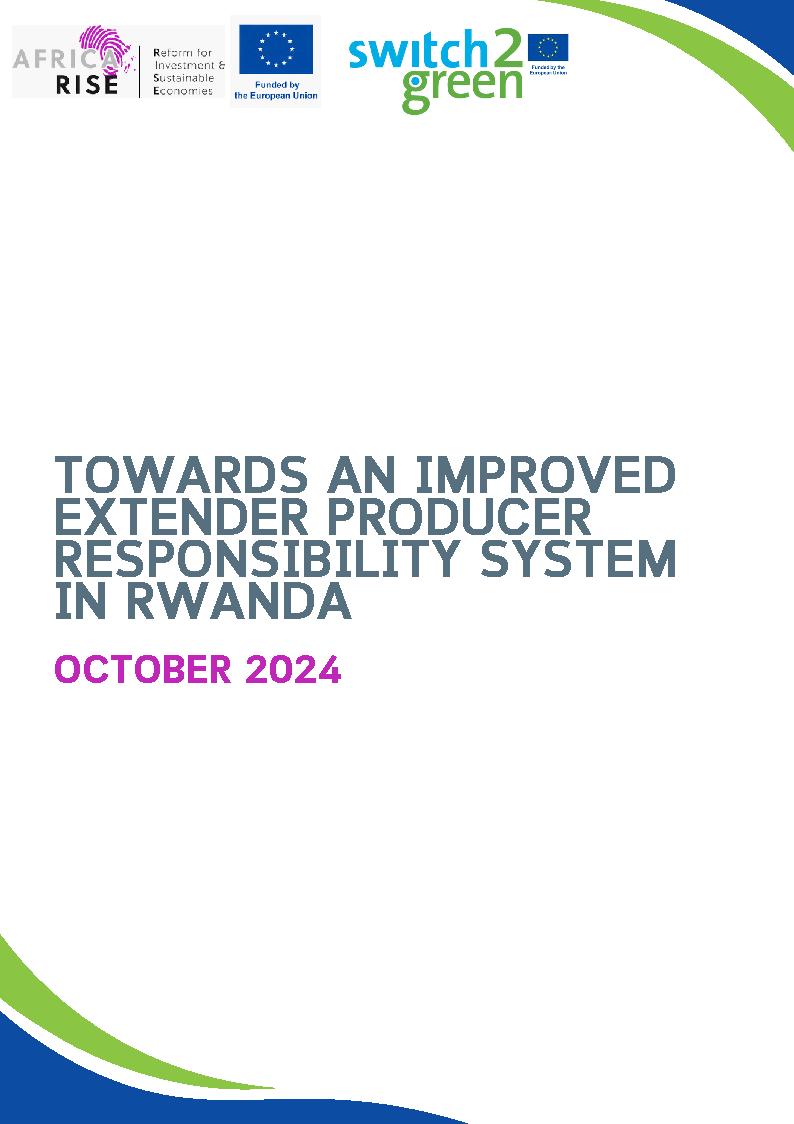An EU funded report by the Africa RISE and SWITCH to Green Facilities laid out steps towards a Extended Producer Responsibility (EPR) system in RWANDA. The report included an evaluation of the current frameworks and systems, and key elements that are needed to improve both the governance structure and the legal framework for PRO-EPR. The result may be used as a benchmark for other African countries. EU support via the Africa RISE and Switch to Green Facilities focussed in Rwanda on the development of the organisation and governance structure for a PRO, with learnings shared across countries and regions.
The learnings of the initiatives highlight that the challenge is to transition from limited, project-based activities to a robust, regulatory-backed Producer Responsibility Organisation (PRO) EPR system can manage the entire packaging waste stream. In order to achieve such a strong market position, some operational and structural changes are required. Details can be retrieved from the report.
An Extended Producer Responsibility (EPR) systems can accelerate the transition from a linear to a circular economy. The opportunities of EPR applications are clear: The EPR shifts end-of-life management costs from the public sector to the producers and consumers of products. EPR helps to generate significant amounts of revenue to finance the collection and management of waste and materials. EPR improves collection rates, and EPR improves material recovery rates in a cost-efficient way. EPR can and must play a crucial role in supporting the transition from a throw-away culture to a circular and low-carbon economy.
Rwanda is a rapidly urbanizing country experiencing major economic transformations: The country has made significant strides in improving its waste management systems. It is well known for its ban of plastic bags adopted in 2018. Yet, a majority of the municipal solid waste generated annually – estimated to more than 12 Mio in 2016, is not recycled or recovered (source). To accelerate improvements, the country formulated ambition targets, including 80% of domestic waste to be recycled by 2024.


